The best non-toxic diapers offer a combination of environmental safety and gentle skin protection. Brands like Healthybaby and DYPER lead the market with their eco-friendly and hypoallergenic diaper options.
Selecting the best non-toxic diapers involves considering the health and comfort of your baby while also taking into account the environmental impact. With rising awareness, parents are increasingly looking for diaper options that are both safe for their children and kind to the earth.
Top-quality non-toxic diapers are typically free from harmful chemicals, fragrances, and lotions, and are crafted using sustainable materials. Brands like Healthybaby, DYPER, and others feature diapers made from plant-based materials and ensure they are chlorine-free, reducing the risk of diaper rash and allergies. Ensuring the baby’s health and comfort without compromising on ecological integrity has become the priority for conscious parents when browsing through diaper selections.
The Rise Of Non-toxic Diapers
Parents worldwide are turning a new leaf by choosing non-toxic diapers. This shift echoes the rise in eco-conscious parenting. Non-toxic diapers offer safety, comfort, and peace of mind, removing harmful chemicals from the equation.
Why choose non-toxic?
Why Choose Non-toxic?
Non-toxic diapers are free from allergens, chlorine, and other harsh chemicals. These diapers prioritize your baby’s health and well-being.
- Better for sensitive skin – Reduces the risk of diaper rash.
- Avoids harmful substances – No dyes, fragrances, or latex.
- Supports overall health – Minimizes exposure to toxins.
Understanding The Demand For Eco-friendly Diapers
Eco-friendly diapers are gaining popularity. These products are not just kind to skin but also kind to the planet.
| Feature | Benefit |
| Biodegradable materials | Less landfill waste. |
| Sustainable sourcing | Protects natural resources. |
| Chemical-free production | Safe for babies and workers. |
- Moms and dads seek out the safest options for their children.
- Many are willing to pay a premium for diapers that promise no harm to the environment.
- Choosing eco-friendly can reduce the carbon footprint for future generations.
Health Benefits For Your Baby
Choosing the best non-toxic diapers offers your baby more than just comfort. It promises a series of health benefits that support their delicate development. Let’s explore how these safer options can lead to a happier, healthier baby.
Mitigating Health Risks
Non-toxic diapers reduce exposure to harmful chemicals commonly found in traditional diapers. Diapers free from chlorine, fragrances, and lotions minimize the risk of health issues later in life, such as asthma or hormone disruption.
- No harsh chemicals: Prevents potential developmental problems.
- BPA-free: Ensures no harmful plastic byproducts touch your baby’s skin.
- Dye-free: Supports overall health by eliminating unnecessary chemical exposure.
Skin Sensitivities And Allergies
Babies have sensitive skin that needs special attention. Non-toxic diapers are gentler, made from natural materials like organic cotton. This reduces the chances of skin irritation and allergies.
| Feature | Benefit |
| Hypoallergenic | Lowers the risk of allergic reactions |
| Breathable materials | Decreases moisture and prevents diaper rash |
| Natural fibers | Gentle on the skin, preventing irritation |
Analyzing Diaper Components
Parents everywhere seek the safest options for their little ones, especially when it comes to diapers. Understanding what goes into diapers is critical. Here we delve into what makes some diapers non-toxic and highlight materials smart parents should steer clear of.
What Makes A Diaper Non-toxic?
Non-toxic diapers are free from chemicals that could harm a baby’s sensitive skin. These diapers use safe, gentle materials, often organic and sustainably sourced. A non-toxic badge means no chlorine, fragrances, or latex are present.
- Biodegradable materials: Reduce environmental impact.
- Chlorine-free wood pulp: Prevents dioxin exposure.
- Plant-based fabrics: Offer a gentle touch.
- No fragrances or lotions: Lessen irritation risks.
Materials To Avoid
Certain Materials can cause diaper rash and long-term health issues. Below is a quick guide to what to stay away from:
| Material | Reason to Avoid |
| Phthalates | Linked to hormonal disruptions. |
| Lead and other heavy metals | Pose serious developmental risks. |
| Volatile Organic Compounds (VOCs) | Can cause respiratory issues. |
| Dyes | May contain toxins and irritants. |
| Fragrances | Often hide phthalates, irritate skin. |
| Chlorine | Used to bleach, creates harmful dioxins. |
Top Non-toxic Diaper Brands
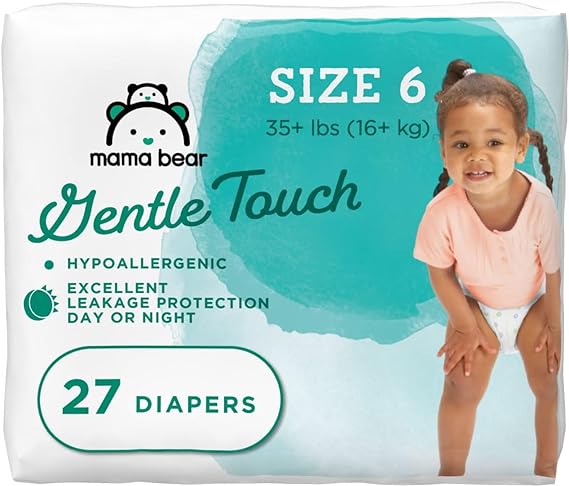
Parents prioritize the health and comfort of their babies.
Non-toxic diapers offer a safe choice.
They are free from harmful chemicals and fragrances.
Let’s explore the best brands for your little one.
Breaking Down Brand Claims
Brands claim their diapers are “non-toxic” and “safe”.
What does this mean? Let’s break it down.
- No chlorine, latex, or fragrances used.
- Diapers are often hypoallergenic.
- Materials come from sustainable sources.
User Reviews And Experience
Real parents provide valuable insights.
They share experiences with different diaper brands.
Their reviews highlight comfort, absorbency, and fit.
User reviews point to favorites:
| Brand | User Rating | Highlights |
| Healthybaby | 4.8/5 | Organic cotton, plant-based |
| DYPER | 4.6/5 | Biodegradable, chlorine-free |
| Honest Baby | 4.5/5 | Gentle, eco-friendly |
Positive reviews can help you decide.
Choose the right diaper for your baby’s needs.
Environmental Impact
Introduction to Environmental Impact
Parents across the globe are becoming more conscious of the environmental footprint of the products they choose. This is especially true for diapers, which can have a significant impact on our planet. Understanding how non-toxic diapers affect the environment is crucial for making an informed choice. Let’s explore the biodegradability and sustainability of these products and the manufacturing processes involved.
Biodegradability and Sustainability
Biodegradability And Sustainability
Biodegradability refers to the diaper’s ability to break down naturally without harming the environment. Non-toxic diapers made with biodegradable materials offer a promise of less waste in landfills. Sustainability is equally important; it ensures that the resources used are renewable and environment-friendly.
- Plant-based materials like bamboo or organic cotton are often used.
- Some brands ensure that their diapers are free from chlorine and plastics.
- A focus on compostable packaging additionally reduces waste.
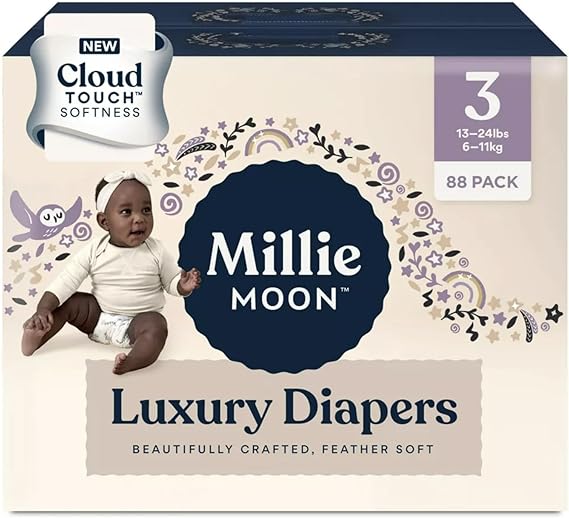
| Diaper Feature | Environmental Benefit |
| Biodegradable Core | Reduces landfill mass |
| Chlorine-Free | No harmful chemical release |
| Renewable Resources | Preserves ecosystems |
Manufacturing Processes
Manufacturing Processes
How diapers are made can greatly affect the environment. Non-toxic diapers are often produced using greener methods. This means lower emissions and less water consumption. Responsible companies enforce strict standards to minimize environmental harm.
- They use clean energy sources like solar or wind power.
- Water recycling systems are in place to conserve water.
- Waste reduction methods are a key part of the process.
Eco-certifications, such as FSC or OEKO-TEX, inform consumers that the products meet high environmental standards. These certifications verify that the manufacturing process is sustainable and eco-friendly.
Cost Considerations
When picking the best non-toxic diapers for your little one, the price tag is a mandatory check. It’s essential to balance quality with affordability. Yet, many parents worry that ‘non-toxic’ means ‘expensive.’ Let’s break down the costs and find long-term savings without compromising your baby’s health.
Price Comparison
It’s true, non-toxic diapers often have a higher upfront cost compared to conventional ones. But, don’t let sticker shock deter you. Conducting a price comparison reveals that the price range varies widely among brands.
Other brands and prices
| Brand | Type | Price |
| Healthybaby | EWG Verified Diaper | $30.00 |
| Millie Moon | Lux Disposable Diapers | $24.99 |
| DYPER | Bamboo Diapers | $19.99 |
| Honest Company | Overnight Diapers | $12.99 |
Long-term Savings
An aspect often overlooked is the long-term savings non-toxic diapers can offer. Less exposure to harmful chemicals means fewer diaper rashes and allergic reactions.
- Reduces the need for rash creams and potential doctor visits.
- Biodegradable options may decrease diaper use over time.
- Subscription services offer discounts and convenience.
Also, consider the reusable cloth diaper. The initial investment is higher, but savings accumulate with each use. They are eco-friendly and contain no harmful chemicals.
Standards And Certifications
When choosing non-toxic diapers, understanding the standards and certifications that back their safety claims is crucial. These certifications ensure products meet stringent health, safety, and environmental standards. Below, we delve into the most recognized certifications so you can make informed decisions for your baby’s well-being.
Ewg Verified Diapers
The Environmental Working Group (EWG) provides a verification mark for products that meet strict health criteria. EWG VERIFIED™ diapers are:
- Free from chemicals of concern.
- Transparent about ingredients.
- Made with good manufacturing practices.
To spot these diapers, look for the EWG VERIFIED™ logo on the packaging.
Other Ecological Labels
Apart from the EWG, other labels also signify safe and eco-friendly diapers. These include:
| Label | Criteria |
| OEKO-TEX® | Diapers are tested for harmful substances. |
| FSC® Certified | Pulp comes from responsibly managed forests. |
| GOTS | Made with organic fibers and eco-friendly processes. |
These labels help identify diapers that care for your baby and the planet.
Tips For Choosing The Right Diaper
Choosing the right diaper is vital for your baby’s health and happiness. Non-toxic diapers protect your baby from harmful chemicals.
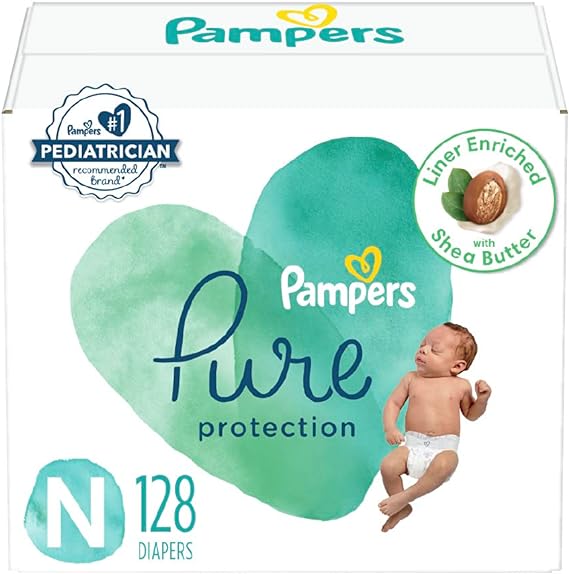
Assessing Fit And Comfort
Fit and comfort are top priorities when selecting a diaper. Look for diapers that offer elastic waistbands and stretchy sides. These features provide a snug, yet comfortable fit that prevents leaks.
- Check size charts for your baby’s weight.
- Choose diapers with soft materials against the skin.
- Ensure there’s no tightness around the waist or thighs.
- Opt for breathable designs to prevent diaper rashes.
Decoding Label Information
Labels on diaper packaging contain important product information. Look for terms like “chlorine-free,” “fragrance-free,” and “hypoallergenic”. These indicators often signify a safer option for delicate skin.
| Label Term | Meaning |
| Chlorine-Free | No chlorine-based substances used in bleaching. |
| Fragrance-Free | No added perfumes that could irritate the skin. |
| Hypoallergenic | Lower risk of causing allergies or skin reactions. |
Innovations In Non-toxic Diapers
Parents everywhere are choosing safe, eco-friendly options for their babies. The diaper industry has heard the call for non-toxic options and is responding with innovative materials and designs. Let’s explore what’s new and what’s coming next in the world of non-toxic diapers.
New Materials On The Market
Recent years have seen a revolution in diaper materials. Here are some game-changing entries:
- Bamboo fibers: Biodegradable and soft, bamboo is a fast-growing, sustainable choice.
- Organic cotton: A hypoallergenic material that’s gentle on baby’s skin and better for the environment.
- Corn-based PLA: A plant-derived bioplastic that offers a breathable and absorbent diaper layer.
| Material | Benefits | Eco-Impact |
| Bamboo | Soft, hypoallergenic, highly absorbent | Biodegradable, sustainably grown |
| Organic Cotton | Gentle, durable, natural feel | Less water and pesticides in cultivation |
| Corn-based PLA | Breathable, strong moisture barrier | Renewable resource, lower carbon footprint |
Future Trends
The future looks bright and eco-conscious for diaper technology. Below are trends we expect to see:
- Enhanced biodegradability: Diapers that break down faster in the environment.
- Compostable designs: Diapers designed for safe, home composting.
- Smart diapers: Innovations that might alert parents to wetness or health concerns.
Brands are investing in research to create the gentlest, most sustainable diapers for our little ones. These trends point to a future where diapers are not only safe for babies but also kind to our planet.
Making The Switch
Parents care deeply about their baby’s health and comfort. Choosing the right diaper is crucial. Non-toxic diapers offer safety and peace of mind. Let’s explore the benefits of transitioning to non-toxic options.
Transitioning To Non-toxic Diapers
Making the switch might seem daunting. Our detailed guide makes it simple and stress-free. Follow these steps:
- Research: Start by understanding the harmful chemicals present in regular diapers.
- Identify: Look for diapers labeled as non-toxic, organic, or chemical-free.
- Test: Try different brands to find the perfect fit and comfort for your baby.
| Feature | Regular Diapers | Non-Toxic Diapers |
| Chemicals | Often Present | Avoided |
| Materials | Synthetic | Organic/Natural |
| Safety | Varies | Generally Higher |
What To Expect When Switching To Non-toxic Diapers
Skin reactions are a concern with any new product. With non-toxic diapers, expect:
- Less Diaper Rash: Natural materials are gentler on skin.
- No Harsh Smells: Free from artificial fragrances.
- Environmental Impact: Eco-friendly options reduce waste.
Adapting to new diapers is a journey. It is worth the comfort and health of your little one. Embrace the change for a happier, healthier baby.
Frequently Asked Questions Of Best Non-toxic Diapers
Which Diapers Are The Least Toxic?
The least toxic diapers are those labeled “EWG VERIFIED,” such as Healthybaby, which are free from harmful chemicals and additives.
Are Pampers Pure Actually Non-toxic?
Pampers Pure diapers are non-toxic, made with premium cotton, plant-based fibers, and are chorine-free and hypoallergenic.
Do Non-toxic Diapers Matter?
Yes, non-toxic diapers matter for reducing chemical exposure and enhancing baby skin health.
Which Diapers Are The Most Natural?
The most natural diapers are typically made from organic materials and are free from harsh chemicals. Brands like Bambo Nature, Honest Company, and Seventh Generation offer some of the most natural diaper options.
Are Non-toxic Diapers Worth It?
Non-toxic diapers can be beneficial as they generally minimize skin irritation, reduce the risk of diaper rash, and limit babies’ exposure to harmful chemicals often found in conventional diapers.
Conclusion
Selecting the best non-toxic diapers is crucial for your baby’s comfort and health. Remember, choosing eco-friendly options supports sustainability too. Each brand offers unique benefits, so find the perfect match for your little one. Trust your choice and give your baby a fresh, clean start with top non-toxic diaper picks.


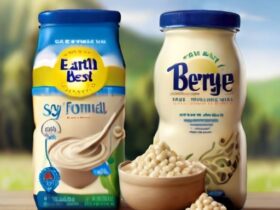
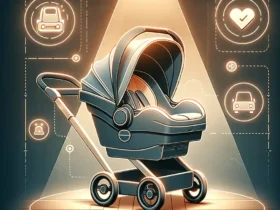
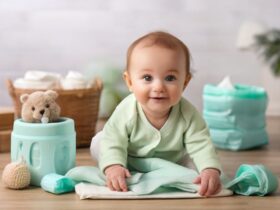
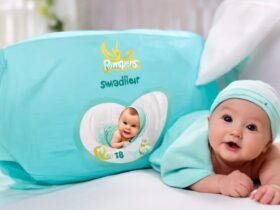



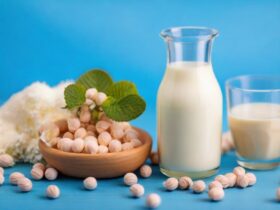
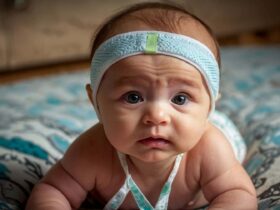


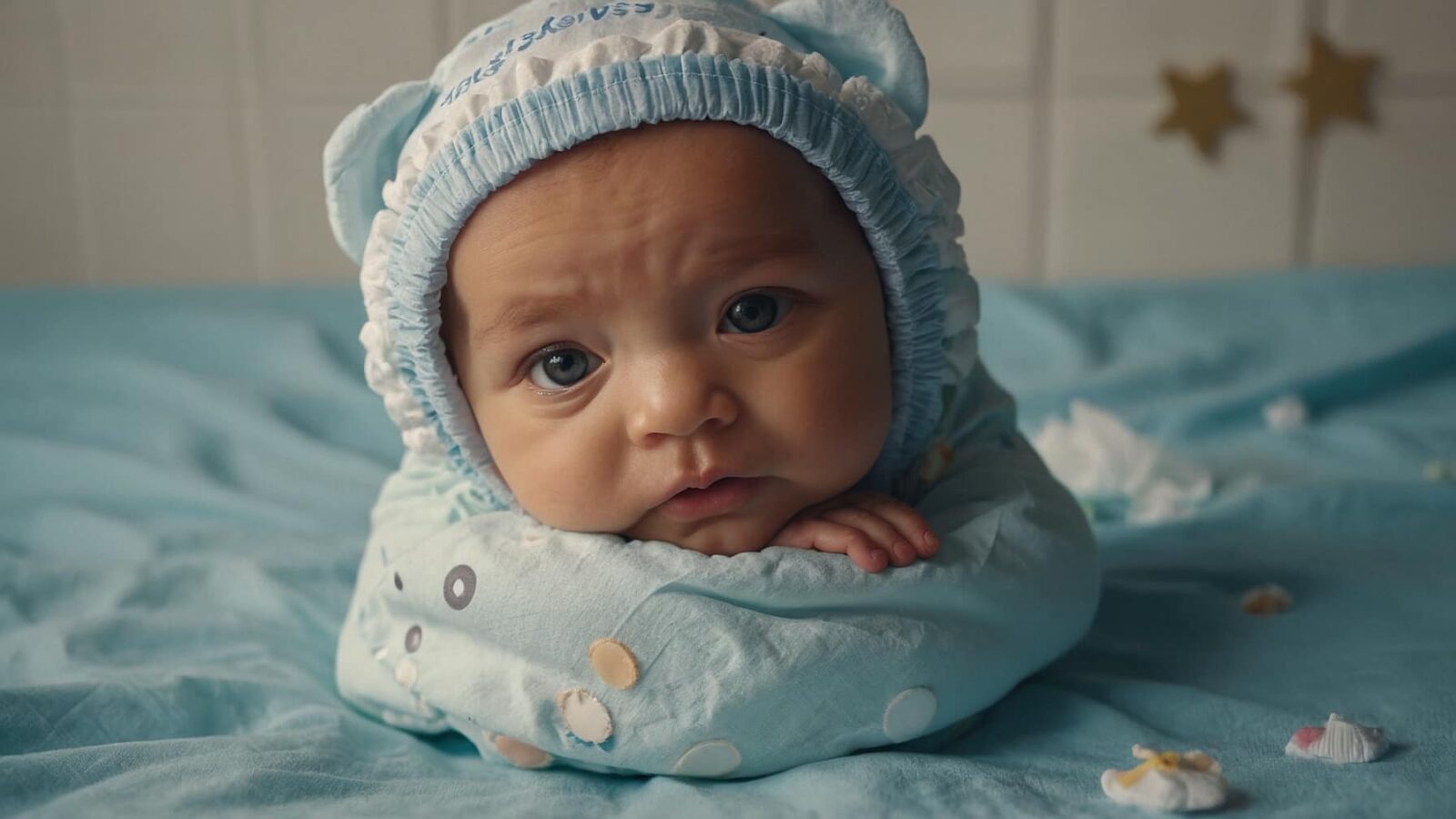
Leave a Review